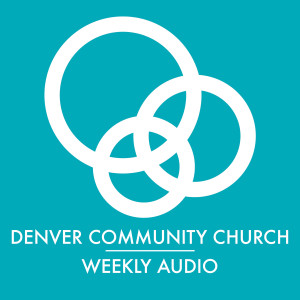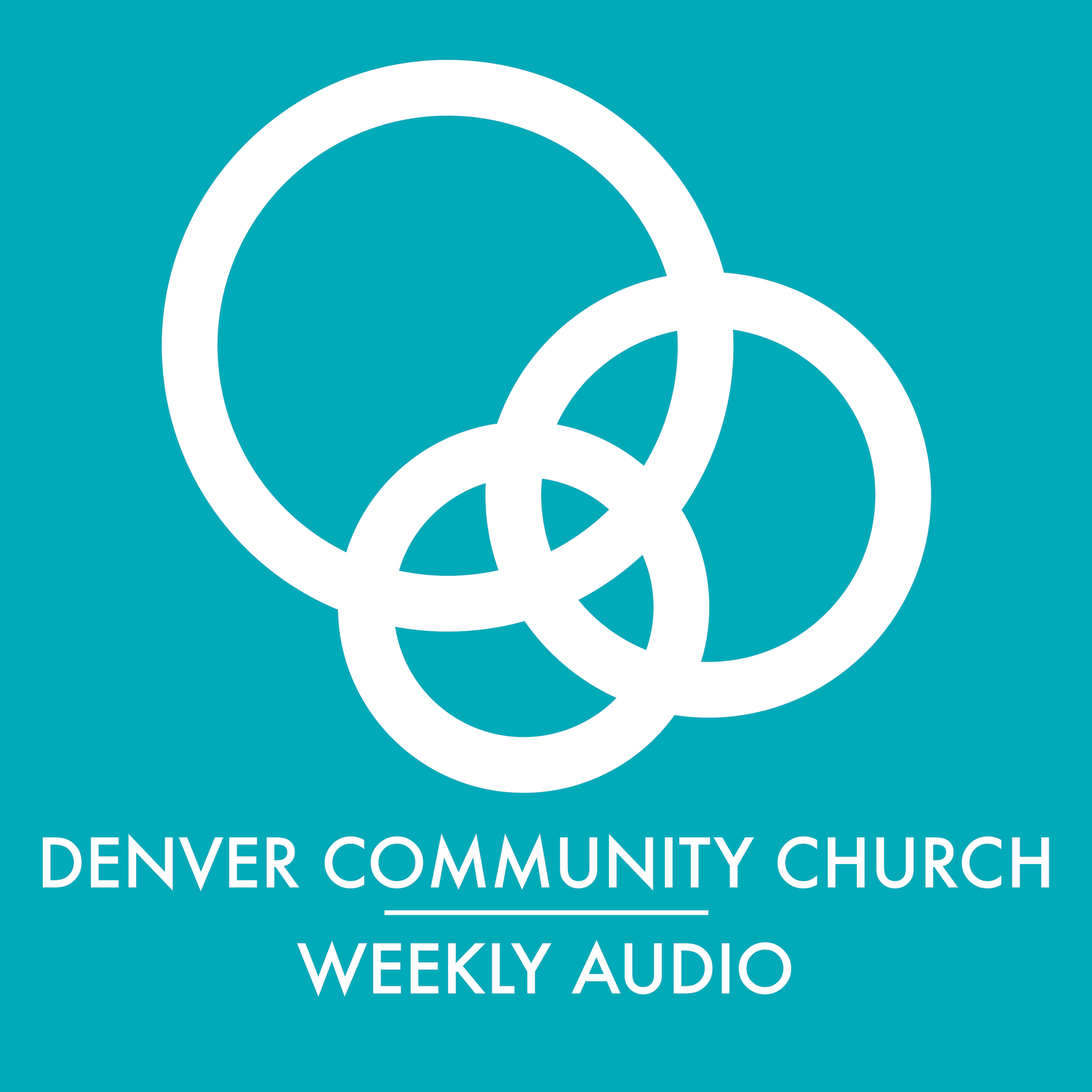Episodes

Sunday Nov 07, 2010

Sunday Oct 31, 2010
October 31, 2010: This Isn't About You – Jeff Johnsen
Sunday Oct 31, 2010
Sunday Oct 31, 2010
The religious are upset that Jesus is hanging out with sinners. Has anything really changed? By Jesus reclining at the table he is doing more than sipping on some wine. He is identifying with these people and their way of life. And these people were the worst kind of people in the minds of the religious.
Jesus’ response? “They are the ones who need me.” There is a bit of a sting here, because Jesus implies that those who are raising the questions don’t need him. In essence he is telling them, “You have your rules, rituals, and all the religious stuff … you don’t need me.” Irony at its finest.

Sunday Oct 24, 2010
October 24, 2010: The Forgiving Blasphemer – Michael Hidalgo
Sunday Oct 24, 2010
Sunday Oct 24, 2010
The Jewish Sages taught, “No one gets up from his sick-bed unless all his sins are forgiven” (b. Ned 41a). In their thinking, if a person was not whole physically then surely he was not whole spiritually. This kind of person was then cut out from the social fabric of the day due to the assumption of his sin. The doors of participation to life in the community were effectively shut in his face and he was left outside.
Here, Jesus extends to this man who was paralyzed on the mat the renewal that he so longed for … the renewal that would open the doors back up to him that had been shut. Yet, even then the religious people do not buy it. This man is still an outcast, and Jesus is a blasphemer. More than thinking Jesus a blasphemer – the religious it seemed missed the point. Jesus had come to establish a new community where the condition of one’s heart was what counted – not the appearance of their body, sick or otherwise.

Sunday Oct 17, 2010
October 17, 2010: Raze the Roof – Michael Hidalgo
Sunday Oct 17, 2010
Sunday Oct 17, 2010
What are willing to do for something that we really believe in? Does our faith have chutzpah? Do we have the courage to go as far as the friends of this man who was paralyzed? It is their faith that enable this man to walk, not the faith of the man.
Perhaps it is that these guys knew what was at stake, and they knew exactly who Jesus was. They would do anything to get to him. They knew who Jesus was and their faith drove them to the furthest possible extreme – ripping a roof apart to reach him.

Sunday Oct 03, 2010
October 3, 2010: Caring For Your Own Soul – Michael Hidalgo
Sunday Oct 03, 2010
Sunday Oct 03, 2010
There is a temptation to be all things to all people. But ultimately our biggest concern must be our own spiritual and emotional health. This means sometimes saying “no.” This means going places where people cannot find you.
Jesus wakes up before his disciples, apparently does not tell them where he is going, and spends time in solitude. His disciples want him to do what the masses are demanding, yet Jesus seems to remain calm and not too wrapped up in people’s opinions. Which leads us to a question, “How many people did Jesus disappoint?” For all the people Jesus healed, were there parents who were upset because Jesus didn’t heal their kids?

Sunday Sep 26, 2010
Sunday Sep 26, 2010
The group Christian Aid has a slogan that states: “We believe in life before death.” In these verses, Mark is still introducing the person of Jesus. Who he is and more importantly what he does. Jesus, it seems is a healer. Jesus, it seems came not only to save souls, but humans as wholes. In light of this we begin to see his holistic mission.

Sunday Sep 19, 2010
September 19, 2010: When Church Gets Crazy – Michael Hidalgo
Sunday Sep 19, 2010
Sunday Sep 19, 2010
When we speak about Jesus healing a person who is demon possessed – this is more than a simple healing – it is a clash of kingdoms. When Jesus engages in this kind of healing it is a picture of the end of all things. The spirit within the man begins by acknowledging who Jesus is. This is interesting because the religious in their midst miss it completely. Jesus then show his absolute authority over the spirit by commanding him to come out and to be silent – both commands are immediately followed. This action then raises the question of authority.
The authority that they speak of can commonly be misconstrued as power or enforcement. One who is able to force his or her will on another. However, as we come to see in Jesus, authority, connotes responsibility. What would life be like if those in a position of authority recognized not simply power – but the responsibility that comes with it?

Sunday Sep 12, 2010
September 12, 2010: Drop Outs – Michael Hidalgo
Sunday Sep 12, 2010
Sunday Sep 12, 2010
What was it about the call of Jesus that the disciples would simply pick up and leave everything? What would it take for you to leave home and walk around a dry dusty land with an itinerant Rabbi? It is interesting to note that the disciples are plying their trade. Some suggest this means they had completed their education, been tested, and had not “made the cut” with other rabbis. In other words – they were “good kids” but not the cream of the crop.
Yet Jesus calls them. One of two rabbis in recorded history who called his disciples, instead of allowing disciples ask to follow him. This is the pattern we see throughout Scripture – God calling the underdog, the least, the lowly (Israel, Gideon, Mary) – and using them to accomplish his world.

Sunday Sep 05, 2010
September 5, 2010: The Seer Seeing What's Seen – Michael Hidalgo
Sunday Sep 05, 2010
Sunday Sep 05, 2010
Dallas Willard said that often Christian may just be flying the plane upside down. If this is the case then left is right and up is down. So how do we fly the plan upright and see the world as Jesus sees it? More than anything else, Jesus spoke about his kingdom. He told stories saying, “The Kingdom of heaven is like …” He proclaimed the good news saying, “The Kingdom of heaven is at hand.” In other words, “The Kingdom of Heaven is present … it is here.”
If this is the case, then why is it that we have heard so little preached about the kingdom in recent years? Perhaps we have forgotten what Jesus said, or maybe we have made our faith about something other that what he spoke of.
The Kingdom is the place where God’s rule or reign is present. This is why Jesus said the “Kingdom of heaven is within you …” We are the bearers of this Kingdom when we live under his reign and his rule. So the question begs, “Are we living this way?”

Sunday Aug 29, 2010
August 29, 2010: Into the Wild – Michael Hidalgo
Sunday Aug 29, 2010
Sunday Aug 29, 2010
The Spirit leads Jesus into the wilderness. Not only that, but then at the end of this ordeal Jesus is directly tempted by Satan, not once, but three times. It is interesting that many times our journey to God is an attempt to control God – and even control our world. But the reality is that control is mostly a false reality. How can any of us really believe that we have our world all worked out?
C.S. Lewis when speaking of God said, “He is wild you know.” And this is the journey we see Jesus on. A journey into the wild … into the unknown. Like any great mythic hero or epic we see Jesus journeying into the wild – classic man vs. nature. How would our spiritual journeys change if we began to journey into the wildness of God – to discover a God who cannot be controlled – a God who is endless love?

